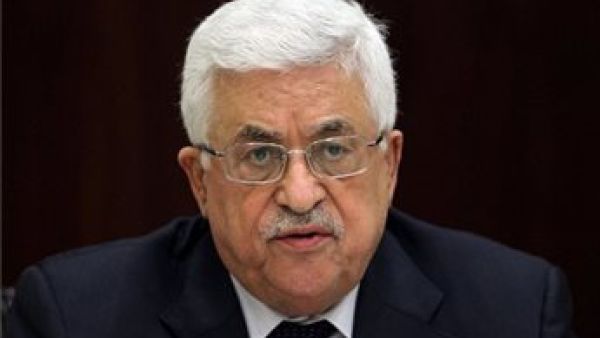Palestinian Authority President Mahmoud Abbas said in an interview with a German television station that he blamed Israel's "demands in East Jerusalem" for having "transformed the conflict's political nature into a religious conflict in a region already burdened with sensitivities."
Abbas said that he rejected any attempt to make the Palestinian-Israeli political conflict a religious issue "on the basis of our rejection of extremism and terrorism in all its forms."
Abbas stated his desire for a peaceful and just resolution to the conflict, but warned that Israeli attempts to annex East Jerusalem and the desecration of the Al-Aqsa mosque had transformed what was an essentially political conflict into a religious struggle.
He said he "looks forward to achieving a just peace for the two peoples, Palestinian and Israeli" through the "establishment of an independent state of Palestine... on the entire Palestinian land occupied in 1967."
The fully sovereign Palestinian state would have East Jerusalem as its capital and would exist in "peace and security alongside the State of Israel," he said.
Abbas said that he envisioned a "comprehensive and lasting agreement" that would entail Jerusalem becoming the capital of both states, but that "Jerusalem should be open for worship for the followers of the three religions, Islam, Christianity and Judaism."
He also stressed the necessity of solving the issue of Palestinian refugees "in a just way agreed upon in accordance with UN resolution 194, and as stipulated in the Arab Peace Initiative."
Abbas warned that the failure of these ongoing negotiations would have "undesirable consequences for our region and the world," and he asked the international community to "intensify action and seize the opportunity" for the good of both the Israeli and the Palestinian peoples.
UN resolution 194, adopted in 1948 near the end of the Arab-Israeli war, states that Palestinian refugees should be allowed to return to their homes and that compensation must be paid to those who choose not to return.
More than 500,000 Israeli settlers live in settlements across the West Bank and East Jerusalem, in contravention of international law. The internationally recognized Palestinian territories of which the West Bank and East Jerusalem form a part have been occupied by the Israeli military since 1967.

Palestinian President Mahmoud Abbas said that Israel's demands over East Jerusalem have turned the conflict into a religious struggle (AFP/File)







